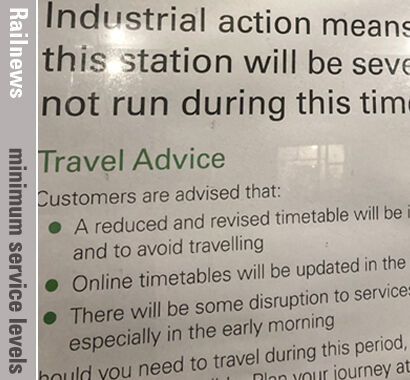Unions and opposition politicians have reacted angrily to the government’s new Bill which gives a minister power to decide on minimum levels of service during rail strikes.
Business secretary Grant Shapps promised that there would be consultation with unions before setting out the levels which would legally apply to workers on the railway and in other public services, such as health, education border security and nuclear decommissioning.
He told MPs: ‘The Government will always defend their ability to withdraw their labour. However, we also recognise the pressures faced by those working in the public sector. Yesterday I invited union leaders in for talks across Government, and I am pleased to say we have seen some progress. We want to resolve disputes where possible, while also delivering what is fair and reasonable to the taxpayer.’
Staff who walked out in defiance of the law could lose their employment protection and be dismissed, while unions could also face claims for damages.
RMT general secretary Mick Lynch is among those who have condemned the proposed law.
He said: ‘This is an attack on human rights and civil liberties which we will oppose in the courts, Parliament and the workplace. One of the most important things in any democratic society is to have free trade unions.
‘This law could make effective strike action illegal, and workers may be sacked for exercising their right to withdraw their labour. The only reason this draconian legislation is being introduced is because the government have lost the argument and want to punish workers for having the temerity to demand decent pay and working conditions.
‘The government’s own impact assessment of minimum service levels shows it wouldn’t work. They would be better off coming to a negotiated settlement with unions through dialogue.’
Unite leader Sharon Graham described the Bill as ’another dangerous gimmick from a government that should be negotiating to resolve the current crisis they have caused’, while Labour’s deputy leader Angela Rayner added: ‘The secretary of state claims that he made progress yesterday, but the read-out from trade union representatives was dismal. Is there any chance of a deal this year? Where is the consultation he mentioned for a meaningful way forward, or was that all for show?’


